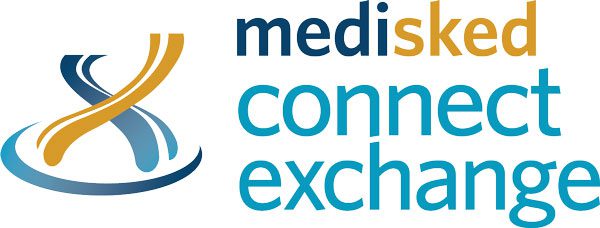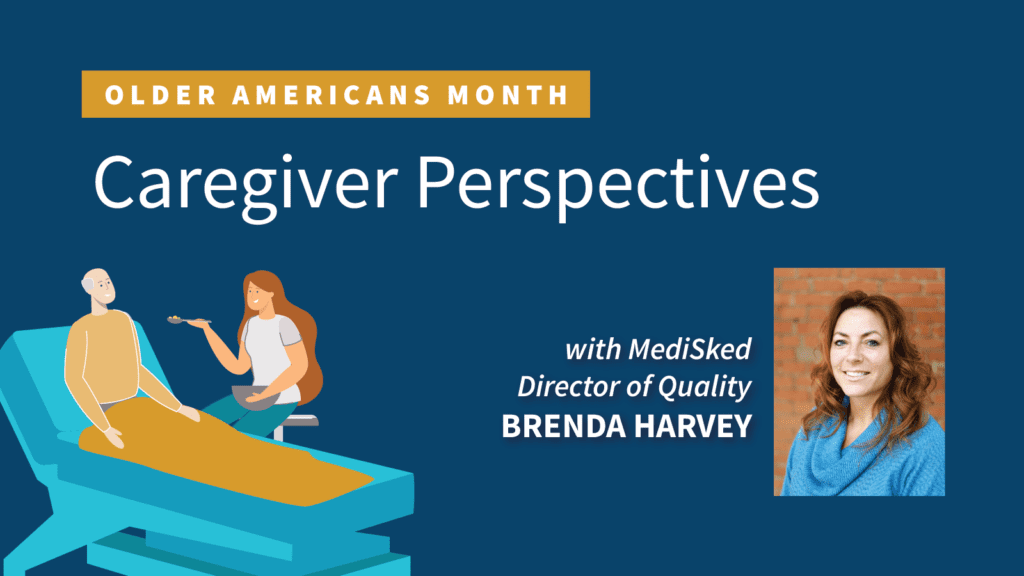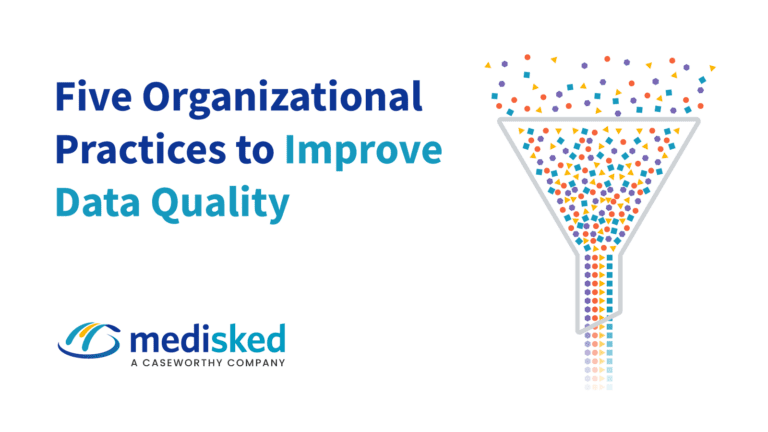Each May, Older Americans Month celebrates the contributions of older adults and their caregivers in our country. Since the tradition began in 1963, every President of the United States has issued a formal proclamation during or before the month of May asking that the entire nation pay tribute in some way to older persons in their communities.[1] This year, MediSked Director of Quality Brenda Harvey volunteered to share her story as a tribute to her father and other older Americans.
My father has vascular dementia which has progressed with prolonged moments of delirium. My dad had several strokes, can no longer walk nor feed himself, and he requires two people to assist him for transitions and changings. I am his designated medical proxy and he made his wishes clear that he never wanted to be admitted to a nursing home facility. It was decided that he would move into my home to receive care.
My dad had been in the hospital, a rehabilitation center, and a skilled nursing facility before moving into his makeshift room in my house. During the last several months, many conversations were held at his bedside while he was ‘sleeping.’ Several of the discussions with medical professionals included deeming him ready for the next level of care, whether it was moving to hospice or comfort care. There were four separate instances where hospice was ordered but each time, he recovered the ability that had deemed it necessary. His doctors labeled him the man with 20 lives. My siblings began to speculate that he must be overhearing the discussions with the doctors and nurses. I assured them that he was asleep as we always attempted to wake him to ensure he was involved in the conversations about his care when possible. They remained convinced that he was still listening and was working hard to avoid the negative outcomes.
Several months ago, I was discussing a serious medical situation in my dad’s room. I had been sure he was sleeping as he had been snoring. During a visit with my brother, my dad began discussing the topics that were covered in the conversation I thought he had slept through. He expressed his concerns and asked for an update and if everything was going to okay. I was dumbfounded as I could pinpoint the day, over six weeks beforehand, when I had that chat with his nurse. I asked how he knew about the conversation… He said he wasn’t sure, but he knew. Of course, I got the “I told you so” look from my brother. Throughout this visit my dad made more comments that about items that had only ever been discussed with him while he was sleeping or in one of his states of deliriousness. One of his nurses mentioned was that his brain is like an onion with many layers to it. As it tries to heal itself, he will remember either very short-term things for the short term, or very long-term items. Everything within earshot can be taken in subliminally.
Tips for Being More Person-Centered
My dad is in a fragile state due to his complex health conditions, but ensuring he keeps his dignity and keeping the process person-centered is something we strive for. We are now very conscious of what is being discussed in front of him or even within earshot. When he asks questions, I give him the information he asks for, but I try not to volunteer more than necessary. More information leads to more questions, but I always tell him the truth, no matter how difficult it is.
While having conversations with him, I’m now more aware of my body language. He frequently expresses concern when someone isn’t smiling or acting different from their normal routine and behavior. When he’s in his delirious state, which can be incredibly taxing as his full-time caregiver, I try to distract him while making sure the conversations are still valid and meaningful. When he’s stressed, I try to relax, smile, and reassure that everything is going well and that it will be ok. I may have to take a deep breath, but I realize my body language is so important to his experience.
I have always been sure to explain each move I was going to make when assisting with my dad’s care tasks, like changing and bathing. But throughout this process I realized there was still need for improvement. Explaining every step of the way what’s being done is great, but it’s vital to ensure he is comprehending it on any given day. Instead of saying, “Hey Dad, I’m going to raise your arm,” it’s “Hey Dad, I’m going to raise your right arm and move it to your belly. Are you ok with that?” This has helped his comfort level with the more personal tasks that need to be performed.
Becoming a caregiver for an elderly parent isn’t something you plan on doing and there is a significant learning curve to ensure your loved one is safe, properly cared for, and as involved in the process as possible.








